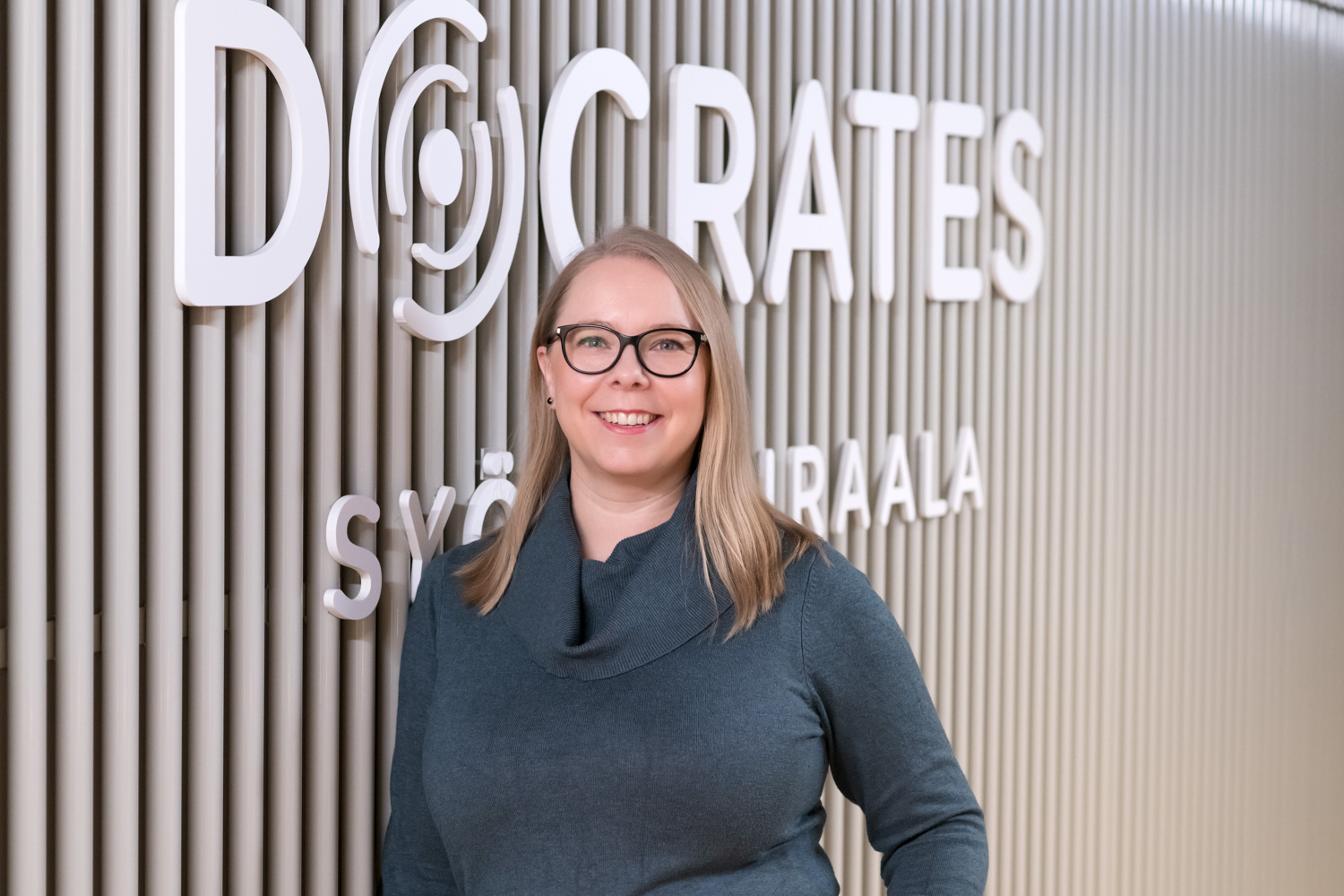Meet one of our cancer center staff, Jukka Kemppainen, Chief Physician, Nuclear Medicine
Jukka Kemppainen derives a sense of meaning from being able to introduce new forms of treatment to Finland when nothing...
Read moreMon-Thu 8-18, Fri 8-16

A sarcoma is a malignant tumor that arises in the connective tissue of the body.
Several subtypes of bone sarcomas and nearly 40 subtypes of soft tissue sarcomas are known. Bone sarcomas most frequently start in the so-called long bones or the pelvis. A soft tissue sarcoma may appear anywhere in the body, but the most common location is a limb.
Soft tissue sarcoma is a very rare type of cancer; it represents only one per cent of all cancer cases. Bone sarcomas are even less common.
Most bone sarcomas are found in young people, while soft tissue sarcoma patients are usually older. In only a few per cent of all cases a possible cause for the tumor can be found, such as a rare family tumor susceptibility syndrome or radiotherapy previously administered to the same area of the body.
A bone sarcoma may cause pain, or it may be detected when the bone breaks due to weakness. Soft tissue sarcomas rarely cause pain or other symptoms. Usually the tumor is detected when the patient or a family member notices a lump that continues to grow.
The diagnosis of bone sarcoma is based on X-rays and CT and MRI scans. Soft tissue sarcomas can be examined by ultrasound, MRI or CT scans. In addition, examinations include needle aspirations of the tumor. A pathologist analyses the samples to determine whether the tumor is a sarcoma and to assess its subtype and degree of malignancy. Once the diagnosis is established, a tomography of the lungs is usually performed in order to stage the cancer.
Each patient needs an individual treatment plan. The plan takes into account the patient’s age; possible primary diseases; the size and location of the tumor; the degree of malignancy; other features of the tumor that might indicate aggressive behaviour; and the surgery performed. It is very important that the treatment plan is drafted by a multidisciplinary team with sufficient experience of the treatment of sarcomas.
The treatment of bone sarcoma depends on the subtype. The most common bone sarcomas are osteosarcoma and Ewing’s sarcoma. Their treatment starts with chemotherapy, after which the tumor is operated on (osteosarcoma) or operated on and/or treated with radiotherapy (Ewing’s sarcoma). After the local treatment of the tumor, pharmacological treatment continues.
The treatment of soft tissue sarcoma is based on surgery. The objective is to remove the whole tumor in one piece without touching it, together with a sufficient margin of healthy tissue around the tumor. If the tumor is large, reconstruction may be required to replace the missing tissue. For example, a muscle flap from another part of the body may be transferred to the surgical site. If it is not possible to remove the tumor with a sufficient margin, the operation is supplemented by radiotherapy. Radiotherapy may also be administered preoperatively. If the malignancy degree of the soft tissue sarcoma is high and it is estimated to be aggressive in nature, the patient may be administered adjuvant chemotherapy. Chemotherapy may also be administered preoperatively, combined with radiotherapy.
Jukka Kemppainen derives a sense of meaning from being able to introduce new forms of treatment to Finland when nothing...
Read more
In the 2020s, about 1,000 Swedish patients have received cancer treatment at the private Docrates Cancer Center in Finland. More...

Docrates Cancer Center has been treating Finnish and international patients in Helsinki for more than 15 years. In 2023, the...

Docrates Cancer Center joined forces with Medanta, a pioneer in healthcare workwear, to create a more functional workwear collection for...
Contact us!
Mon-Thu 8:00-18:00, Fri 8:00-16:00
